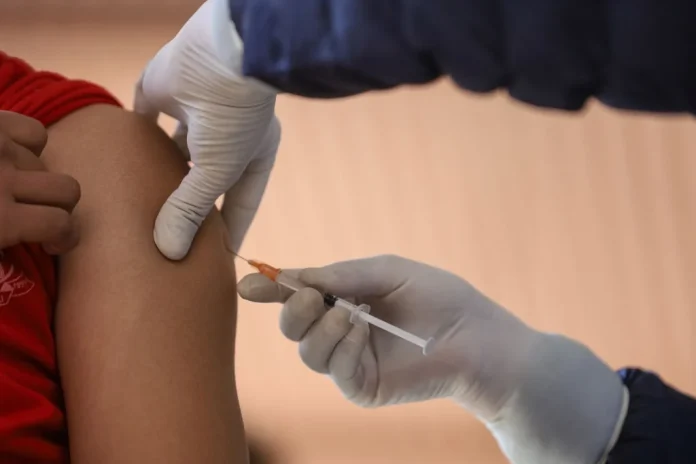The National Institute for Communicable Diseases (NICD) says it is currently facing a significant surge in rubella cases nationwide. A total number of 10137 positive cases of rubella have been identified in the country between January and November 2024. 98% of these cases affected children under 15 years old, with the majority occurring in the 5-9 year age group.
This surge is reportedly due to a large number of children entering the year with no prior rubella exposure or vaccination – as vaccination for the disease was separate from the routine immunisation programme before 2024.
The Centre for Vaccines and Immunology (CVI) at the NICD has identified an increase in rubella cases in 2024, surpassing the figures from fever-rash surveillance since 2015.
Rubella is a mild, self-limiting infection that presents with fever and a maculopapular rash, myalgia, enlarged lymph nodes, headache and conjunctivitis.
The large seasonal increase is because rubella is transmitted by droplets containing virus particles, and the non-pharmaceutical interventions (lockdowns, social distancing and mask-wearing) applied during the SARS-CoV-2 pandemic interrupted the natural seasonal transmission of rubella.
For 2020-2022, almost no rubella cases were identified from the National Department of Health/NICD fever-rash surveillance. Children who have been infected with rubella over the past three years are now becoming infected with the infection.
Occasionally, persons may develop joint pain (arthralgia), low platelets and mild encephalitis. Pregnant women who are susceptible to rubella (who have not been vaccinated against rubella nor had natural rubella infection at some point in their lives) are at risk of passing rubella infection to their unborn child, resulting in ‘congenital rubella infection’.
“Fortunately, this is uncommon, as studies have shown that up to 98% of women of childbearing age are immune to rubella.”
Congenital rubella syndrome may lead to foetal death or congenital abnormalities such as congenital heart disease, blindness and deafness. Any pregnant woman who has been exposed to a case of rubella, or a person with fever and rash should report this urgently to their health practitioner. The practitioner will conduct rubella testing to establish if the pregnant woman has been infected with rubella. A pregnant woman who is diagnosed with rubella infection should undergo specialist obstetric evaluation.
Rubella is a notifiable medical condition. All persons meeting the case definition for rubella (see here) should be notified, and a blood specimen for rubella antibody testing should be sent to the NICD. Specimens are routinely tested for measles and rubella. Given the backlog of tests at the NICD, priority rubella testing should be requested in the following circumstances:
- When a pregnant woman in her first trimester of pregnancy is exposed to a case of rubella or a person with fever and rash.
- When a test is required to rule out a diagnosis of rubella or measles in a patient who is severely ill and is admitted to hospital.
- When a neonate is suspected of having congenital rubella syndrome.
The specimen should be marked “Priority sample, URGENT testing required.”
READ MORE: Farm workers wants Terbufos banned following food illness cases




